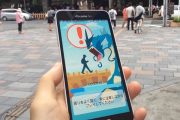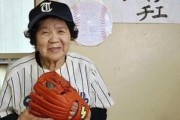
Although many of the stories that trend among netizens demonstrate the tensions inherent in modern Japanese society, every once in a while a story emerges from the fray that acts as a reminder of the tremendous changes and often bitter experiences upon which that privileged modern society is built.
The article below is the heart-warming story of a 99-year old university student whose own youth was spent in times of poverty and war; a man who never forgot the harrowing images of those years, but who still manages to show us all how important it is to learn from the past, and to make the study of that past part of our future.
And for once, netizens agree.
From Yahoo.co.jp:
The 99-year-old university student who commutes for two hours to pursue his studies in international political history.

Momoyama Gakuin University, in Izumi, Osaka. In one of the classrooms, among the young students in their teens and twenties, an old man with the deep wrinkles of his years carved on his face sits, looking straight ahead. But this figure, sitting up straight and concentrating on the lesson, also gives off a sense of youthfulness. This person is Murakawa Nobukatsu, a resident of Higashinari Ward in Osaka who commutes to this university. And at the moment, he is a 99-year-old auditing student.
◆ “Reserved seat” in the middle of the front row
At the university, he attends classes in international political history and international law, commuting twice a week by bus and train, for two hours each way. The middle of the front row is his usual seat in the classroom. He takes a cushion from his backpack, puts it on the chair, and sits down. He sets out a notebook and a magnifying glass for reading small letters, and waits for the class to begin. Classes are around 90 minutes long. During this time, his concentration doesn’t falter. He listens to the teacher and takes notes, and writes down everything on the blackboard, without leaving out a word. As well as the notebook he uses in class, he has a notebook at home which he uses for clean copies. ‘I write down words I don’t understand phonetically, and while I am writing up my notes at home, I look them up,’ he says, showing a devotion to learning which would put even students studying for their university entrance exams to shame.
◆A desire for study which household finances did not allow
From his youth, he had felt ‘I want to study’. However, after graduating from elementary school, he had to start working immediately. His family’s budget would not allow him to fulfill his wish to go on to study at junior high school. That time, before the war, was ‘an era when everyone was poor,’ which included those around Mr. Murakawa. ‘It was such a pity for myself and the other people who had good marks that we couldn’t go on studying. We cried together.’
Thinking he might be able to continue his education at night school, he studied by himself and passed the transfer exam for a trade school, but his father wouldn’t allow him to go.
Then, during the Pacific War, he was sent to the Burmese front as an army medic. Shot during the rout, a countless number of his comrades died before his eyes. On top of that, on the battlefield they also struggled with starvation. ‘We ate tadpoles, snakes, anything’. He says many of his comrades died from starvation.

An image of Japanese troops in Burma during WW2.
So horrific was the experience that he felt: ‘I don’t understand why I was left alive.’
After returning to Japan, he worked in a factory making men’s clothes, and after that continued in various technical jobs until retiring at the age of 85. When he was 93, he became an auditing student, and finally the dream of studying he had had since childhood was realized. The catalyst was a pamphlet he happened to see in the Osaka Prefectural Office for auditing students at Momoyama Gakuin University. Thinking, ‘could I study with university students?’ he was very excited.
◆An endless curiosity supporting going to university
Up until now, he has been attending classes in Japanese history and world history, international law and so on. The reason he chose to study these is that he wanted to understand why the war he experienced happened, and the background to it. And, as his studies went on, he came to think that international conflict should be avoided through diplomatic efforts rather than war.
‘In the underground malls in Osaka and Umeda, everyone now walks around looking nice and clean, but at the end of the war, children with dirty faces were sitting on the ground. Having seen that, I think things like war should definitely not happen.’

‘Whity’, one of the underground malls in modern Umeda.
Meanwhile, what supports his own university study is his endless curiosity. As one example of this, he says he has tried English conversation classes. ‘Recently, there have been adverts written in English, and I didn’t understand them. Because I studied, I can now mostly understand them if I have a dictionary.’
Mr. Murakawa lives alone since his wife died in 1998. He has children and grandchildren, but says ‘living alone is better and relaxed’. He also does his own cooking. ‘There are things I fail at, but if I think of the battlefield, I can eat anything as if it’s delicious,’ he laughs.
On days when he doesn’t have classes at university, he enjoys his favourite hobby, photography. This winter, he plans to photograph the sun setting in Osaka bay.
Mr. Murakawa turns 100 in December. ‘I want to carry on as an auditing student even when I’m 103 or 105. There are so many things in the world that I don’t know.’
Comments from 2ch.net:
斑(秋田県):
>Instead of war, international conflict should be avoided through diplomatic efforts, rather than war.
Someone should try and tell this message to the netouyo.
ヨーロッパヤマネコ(アメリカ合衆国):
He’s a living legend who can study the things he did himself in history.
コドコド(広島県):
Someone with this kind of passion is amazing.
Ignoring differences in thinking, you can simply admire him.
名無しさん@13周年:
I also graduated university over 20 years ago.
At that time, I did my best to graduate through part time jobs, girls, and drinking.
I didn’t regret it. They were good times.
However, lately, reading newspapers or seeing things on the net, I’ve started thinking…what was in the lectures at university?
…sorry, I lied.
I very much regret it. I want to study at university again.
Because I definitely wouldn’t sleep.
Sorry, Shunpei-sensei.
名無しさん@13周年:
Hurry up and die.
Wasting tax money.
Pension tax parasite.
名無しさん@13周年:
It was in America, but a university and a nursing home were put together, and the elderly residents gave lectures on the things they remembered themselves. The pride of the elderly people who were lecturing returned, and the students who attended went from being repelled by the old people to respecting them.
名無しさん@13周年
When the war finished he was about 33? Mandatory retirement age is 60?
He supported the Japanese economy with technical work until he was 85.
Why would you not think he would want to do gratuitous study? I think he worked hard.
名無しさん@13周年:
It’s not because he wants academic qualifications.
This old man wants to study.
He’s not like you qualification kids.
Studying because you want a qualification quickly stops being education. It’s just the same as qualification mania.
名無しさん@13周年:
Amazing.
In this world, there are many people in their 70s who just sleep. To commute to university at 99 is too amazing.
The strength it needs is probably like for a young person to run a full marathon and then climb Mount Fuji on their hands.
名無しさん@13周年:
This old guy who fought a losing war keeps saying things without taking responsibility, and is taking up a young person’s seat with meaningless studying.
Stands to reason that they lost the war.
名無しさん@13周年:
I admire him so much…
But it must be tough for the teacher.
名無しさん@13周年:
It’s regrettable to die ignorant. Even if you know, there’s not much you can do, and it’s not really useful for anything.
But, dying ignorant is certainly scary.







